- The First (1st) Distinguished Lecture BY DR. SULAIMAN AKOREDE POPOOLA
MICHAEL OTEDOLA COLLEGE OF PRIMARY EDUCATION, NOFORIJA-EPE, LAGOS STATE
THE FIRST (1st) DISTINGUISHED LECTURE
ELITIST, RELIGIOUS OR POLITICAL WAR? AN INSIGHT INTO THE ACTIVITIES OF BOKO HARAM ANTI-WESTERN EDUCATION PHENOMENON IN THE NORTHERN NIGERIA
BY
DR. SULAIMAN AKOREDE POPOOLA
CAIS, B.A., (UI), PGDE, MA.(ILORIN), PH.D (OOU.AGO-IWOYE)
Department of Islamic Studies,
MOCPED, EPE, LAGOS STATE
Delivered: 28th May, 2015
The First (1st) Distinguished Lecture
Delivered under the Chairmanship of
The Provost
Professor Olu AKEUSOLA
NCE, (LACOED), B.A, M.A., PhD, (UNILAG)
Date: 28th May, 2015
Published by:
Directorate of College Lecture Series,
Michael Otedola College of Primary Education,
Noforija-Epe,
Lagos State, Nigeria.
Printed by:
P I C T U R E
DR. SULAIMAN AKOREDE POPOOLA
CAIS, B.A., PGDE, M.A., Ph.D.
(Doctor of Philosophy in Islamic Civilization)
ACKNOWLEDGEMENTS
In line with the academic tradition in recent times, I wish to use this opportunity to first of all thank Almighty Allah, the only God Who teaches man what he does not know, the Munificent, the Merciful. I praise Him for His protection over my life and that of my family; and for giving me the privilege to reach where I am today. It is a success story. I thank my parents: Late Pa Abdul-Ghaniyy Ishola Popoola and Alhaja Aduke Popoola both of blessed memory, for their worthy investment on my academic career and my life in general. I say thank you to them.
I specially thank the Provost of this great institution Professor Olu AKEUSOLA for his resilient and very dynamic leadership quality whose unique initiative results in what we are witnessing today. I thank you for your doggedness and industry at repositioning our dear College for better tomorrow. I also thank the former Deputy Provosts, Dr.T.L. Ibraheem, Sir Viatonu, A.O. and Dr. Odunola O. Oshodi.
I thank my dear sister- Dr. Eunice M. Oyetade for her wisdom and hardwork.
I owe my sincere gratitude to all my teachers particularly Professors Kamaldeen A. Balogun, M.A Muhibbu-Din, M.O. Opeloye, Abdur-Rahman M. Oloyede , Y. A. Quadri, Is-haq Oloyede and S.H.A. Malik, Late Professors M.O.A. Abdul and M.A. Ajetunmobi (R.T.A.) and Dr. A.A. Akanni. I am also highly indebted to those teachers from whom I cut my teeth in knowledge. They include Late Shaykh Ambe, Ayegbami, Ofa, Kwara State, Late Alhaji Yusuf Amuda Afenifere, Ustadh Abdul Rasaq Olatunji Sulayman, Alhaji Yusuf Ala, Ustadh Fadlul-Maola B. Ibrahim, Ustadh Mohammed Hassan (Sudan), Alhaji I.O. Adeniyi, Ustadh Bankole Mustapha, Ustadh Rabiu Isa and Ustadh Sulayman.
My special appreciations go to Professor Tunde Samuel, Professor A.O.A Oguntoye, and the Management team of this College: Mr. Bola Y. Shittu (Registrar), Alhaji A.G Ajose (Bursar), Mr. G.O. Onifade (Librarian), Engineer L.E.O. Ibraheem, Mrs. P. Akinrodoye and Mr. T.A. Julius (Auditor) . To all of you, I say a big thank you. Equally important to me are my special friends and colleagues: Dr. Adeleke W.E.A, Mr. B.I. Toyib, Mrs. Sherifat Omolola Bello, Alhaja A.K. Hassan, Dr. Kosoko-Oyedeko and all academic staff members of the School of Arts and Social Sciences. To all of them, I owe a debt of gratitude.
I pay special tribute to those in my primary Constituency in this college. I thank Dr. S.O. Arimiyah, Alhajj S.A. Kazeem, Alhajja M.A Agbabiaka-Mustapha, Alhajj Yusuf, T.O, Alhajj M.A, Shittu, Alhajj K.Y. Balogun, Dr. K. O. Ajape, Khalifah Otunuyi, Dr. T.L Ibraheem, Mr. A.A. Adegbola, Mrs. E.O. Ajiboye, and Dr. A.K.T. Otunuyi. In the same vein, mention must be made of the following: Mr. and Mrs. Adekoya (Snr), Mrs. Rasheedat Olabisi (UK), Barrister S.O. Idowu, Mr. A.A. Adebayo, Mr. K. N. Yekinni, Mr. A.O. Mohammed, President and members of the Prestigious Oroki Club ’99, Osogbo, Dr. A.K. Makinde, Dr.. O.O Idowu-Osho, Dr. Ayodele Taiwo, and to all other Staffers and Students, Michael Otedola College of Primary Education, Epe, I say a big thank you to all of you.
Above all, I appreciate the efforts of my immediate family for enduring and tolerating my constant absence from home for official assignments. It is indeed a big sacrifice from Hajjia Adenike Popoola, Hajjia Olusesan Popoola and all my children. To all of you, I say Jazakumullahu Khayran.
In the Name of Allah, the Munificent, the Merciful
Preamble
I feel highly honoured to be given this unique and historic opportunity to deliver the first Distinguished Lecture to be held in the history of this great Institution. To me, it is a rare privilege to be part of the ‘beneficiaries’ of this historic initiative from my Provost – Professor Olu AKEUSOLA whose vision for the College to excel is unparalleled. I say thank you sir. I also thank the National Commission for Colleges of Education under its Executive Secretary Professor M.I. Junaid, for the Institutionization of Distinguished Lectures for Chief Lecturers in Colleges of Education in Nigeria.
Protocols
The Provost Sir,
Chairman and Distinguished Members of the Council,
Office of the Deputy Provost,
Registrar,
College Librarian,
Bursar,
Members of the Management,
Deans, Directors, Chief Lecturers and Members of the Academic Board,
Other Academic Colleagues in and out of this College,
All Members of Staff of the College,
Friends from other Institutions,
Distinguished Ladies and Gentlemen,
Gentlemen of the Press,
Great MOCPEDITES.
I welcome you all to the 1st Distinguished Lecture of this great Institution.
ELITIST, RELIGIOUS OR POLITICAL WAR? AN INSIGHT INTO THE ACTIVITIES OF THE BOKO HARAM ANTI-WESTERN EDUCATION PHENOMENON IN THE NORTHERN NIGERIA.
- Introduction
It is my sincere belief which I hope you also share that there is no other time more auspicious than now to lend one’s voice to the numerous others, who have discussed on Boko Haram: a dreaded group whose violent activities have created so much agonies in the minds of every average Nigerian. This lecture is particularly significant to me, not just as a Muslim but also as someone whose academic discipline has put in a vantage position to articulate the position of a dispensation currently at receiving ends as a result of unholy acts of a group that has unleashed untold terrors both on the lives and psyche of Nigerian people. Mr. Provost sir, as an attempt at bringing this lecture into proper perspective; it is pertinent to give a background information on what Boko Haram means, its ideology and other issues that are germane to this group.
- Boko Haram: A Clarification on Nomenclature
The Boko Haram group calls itself “Ahl As-sunnah Wal-Jama’at ‘ala Minhaj as-salaf” which means “people of the way of the Prophet Muhammad (S.A.W) and the Community (of Muslims) in line with the earliest generation of Muslims”. In other words, Boko Haram; the name by which the group is commonly identified and addressed is not its real name by nomenclatural definition. The name has its root in the media and the public/Community image obviously for ideological reason. By literal definition, ‘Boko’ is an Hausa parlance corrupted from the English word ‘Book’
‘Book’, in technical terms, is popularly used to refer to the formal public or educational system in Nigeria,also referred to as Western Secular education. The word is used to refer to western education in all its ramification, along with anything it is associated with (The Boko Haram Strategy, 2009:1)
The word “Haram” on the other hand, is a Hausa adaptation from Arabic which means ‘forbidden’ or ‘prohibited’ (Cowan, 1960). From the above definitions, ‘Boko Haram’ may be interpreted as ‘Western Secular education is Islamically prohibited or evangelism deceptively camouflaged as western education is Islamically prohibited (The Boko Haram Tragedy, 2009:2). According to them, Western Education is sacrilegious.
- Boko Haram and the Genesis of Pogrom
Boko Haram group was believed to have been really formed in Maiduguri around 2001/2002 under the leadership of late Muhammad Yusuf. Its primary objective was to preach against economic inequality between the rich as particularly represented by the political elites and the poor. In pursuance of this objective, the group began series of aggressive preaching against this trend. In an interview conducted by Tajudeen Sulaiman, an associate editor of the Tell Magazine in the street of Maiduguri, responses of the people seem to corroborate the above fact. According to Sulaiman, “many said Boko Haram , especially under Yusuf; its late leader, preached against the excesses of politicians’ (Tell Magazine, August 1, 2011).
Sensing the implication of the massive support being enjoyed by Boko Haram group from members of the public initially, Bornu State Government then, began a clampdown on the group. This climaxed in the arrest of its leader Muhammad Yusuf by security agents on the 27th of July, 2009 manacled and eventually killed. This action triggered off the violent instinct in the group and from then began the insurgency against the Nigerian State; targeting mostly the security agencies and their offices, churches, mosques, media houses, banks and even the Muslims. From Maiduguri in Borno State, they spread their tentacle to almost all the Northern States, killing, maiming and destroying properties. Today, States like Yobe, Adamawa, Kastina, Gombe, Bauchi, Plateau, Kano, Kaduna, Niger, Kogi and the Federal Capital, Abuja have had their shares in brutal experiences. Statistics have so far shown that more than hundred attacks have been carried out; thousands of lives lost and properties worth billions of Naira destroyed in this carnage. These catalogues of attacks keep increasing on daily basis.
Lamenting on the activities of Boko Haram, the Amnesty international (2015), in a letter written to the President of the Federal Republic of Nigeria states thus:
Mr. President,
The Amnesty International delegation joins others in expressing its deepest condolences to the family and friends of Ambassador Yusuf Mohamed Ismail “Bari Bari” and to the people of Somalia.
The situation in Nigeria demonstrated a cycle of violence in which human rights abuses and violations by the armed group known as Boko Haram and the Nigerian security forces all too often feed further violations and abuses, that cycle must be broken.
Since 2009, when Boko Haram launched a violent campaign against the Nigeria state and its civilian population, Amnesty International has gathered evidence that raises the reasonable belief that Boko Haram and the Nigerian military have committed crimes under international law in the context of their conflict.
The conflict has escalated significantly in the last twelve (12) months as Boko Haram has conducted almost daily attacks in north-east Nigeria. The evidence collected by Amnesty International indicated that the crimes under international law committed by Boko Haram include war crimes and crimes against humanity. Boko Haram should be held accountable for killing of civilians; imprisonment and abductions; forced marriage; rape and sexual slavery; recruitment and use of child soldiers; and pillage and targeting civilian objects.
In their response of Boko Haram, the Nigeria armed forces, often relying on assistance from the Civilian Joint Task Force, have committed serious human rights violations and may also have committed crimes under international law, including war crimes and crimes against humanity. Amnesty International is concerned by: deaths in custody, extrajudicial executions, torture and other cruel, inhuman or degrading treatment, arbitrary arrests; and unlawful detention.
The Government of Nigeria must take prompt and effective steps to investigate and hold accountable perpetrators of serious crimes on all sides, including Boko Haram, Nigeria Military Forces and the Civilian Joint Task Force.
Amnesty International urges the Human Rights Council and its members and observer, to remain seized of the situation.
Thank you Mr. President.
- Statistics of Major Attacks from 2011 till 2012
NAME
DATE
LOCATION
DEATHS
NOTES
2011 Abuja United Nations bombing
August 26, 2011
Abuja
21
73 injured Boko Haram attacked a United Nations compound
2011 Damaturu attacks
November 4, 2011
Damaturu
100-150
Islamic Militants associated with Boko Haram attacked Police Stations, Churches, and Banks.
December 2011 Nigeria clashes
December 23-23 2011
Maiduguri and Damaturu
68+
Islamic Militants associated with Boko Haram clashed with security forces
December 2011 Nigeria bombings
December 25, 2011
Madalla
45
73 injured; Muslim Militants bombed a Catholic Church during Christmas Mass
January 5-6, 2012 Nigeria attacks
January 20, 2012
Mubi, Yola, Gombi and Maiduguri
37+
Islamic terrorist attacked churches and Christian businesses; Boko Haram claimed responsibility
January 20, 2012 Nigeria attacks
January 20, 2012
Kano
185
Islamic terrorist attacked Churches and Christian Businesses; Boko Haram claimed responsibility
April 2012 Kaduna Massacre
April 8, 2012
Kaduna
38
Islamic terrorist bombed a Church on Easter
June 2012 Kaduna church bombings
June 17, 2012
Kaduna, Wusasa, and Sabon Gari
12-19
80 injured; Islamic terrorist bombed three Churches
Adapted from Tell Magazine of July 23, 2012 page 25
It is sad to note that the loss of innocent lives and wanton destruction of properties are not only the fear which the Boko Haram has instilled in the psyche of Nigerians but also the surprising nature of its attacks and the magnitude of the havoc usually done which have made Boko Haram a bad metaphor in Nigerian history. Now in Nigeria, one can easily say that the fear of Boko Haram is indeed the beginning of wisdom even among the security agents.
- The Al-Qaeda Connection
Even though the formation of the Boko Haram group predates the threats of Al-Qaeda in Nigeria, yet several intelligence reports have indicated a strong link between the group and other groups in several other parts of the world. One of the reports sent in May, 2010 by the Head of the Morocco Intelligence Service who was said to have contacted their Nigeria Intelligence Service counterpart was to appraise them of credible evidence, linking al-Qaeda Maghreb with some extremist groups in the country including Boko Haram (Tell Magazine, August 1, 2011 p.20).
Apart from supplying the names of al-Qaeda contacts, the report also indicates that Boko Haram members are being trained in al-Qaeda secret training camps in Northern Mauritania and Somalia. Upon further investigations, the Nigerian State Security Service (SSS) also confirmed obvious links between Boko Haram group and a Somalia religious terrorist group. Its members are reported to be travelling from there (Somalia) through Chad, Sudan and Northern Kenya.
The above report was corroborated by another one published by the United Nations (UN) in January, 2012 which cited its regional officials as saying that “Boko Haram had established links with Al-Qaeda in the Islamic Maghreb” and that “some of its members from Nigeria and Chad Republic had received training in al-Qaeda in the Maghreb camps in Mali during the summer of 2011. The report added that, seven Boko Haram members, passing through Niger were arrested with names and contact-details of members of the al-Qaeda affiliate “(Tell October 8, 2012). However, the State Security Service (SSS) was not able to conclude the investigation then because they were focusing more on the approaching 2011 elections.
- The Role of the Political Elites
Mr. Provost and distinguished listeners, from all indications, there is certainty that the Boko Haram group has political sympathizers among highly placed politicians and this is a public knowledge. Apart from Senator Ndume who faced charges for his alleged sponsor of Boko Haram activities, President Goodluck Jonathan himself also confirmed it that the Boko Haram group has sympathizers within his Cabinet. His statement was corroborated by his then Security Adviser, Late General Andrew Azazi who stated at a public function that the ruling Party should be blamed for Boko Haram insurgency. Another pathetic statement credited to the then Inspector General of Police, Mohammed Dahiru Abubakar in the Guardian, of November 21, 2012 was that the ‘Non-passage of Anti-terrorism Bill delays trial of Boko Haram Suspects.
Moreover, there is no doubt that for the sect or any group for that matter to be that successful, it must have received support from elements that are spread out across the various social strata-hinting at some degree of acceptance in some quarters. Certainly, there is no smoke without fire; it follows therefore that there are some bigger forces lurking behind them (Ikhariale, 2015).
Another possibility to political class ‘involvement in Boko Haram activities were the alleged statement credited to the Boko Haram group itself claiming the reason for one of its Kano attacks. The group was alleged to have attacked to protest the refusal of the incumbent governor to pay their monthly stipend as was the tradition set up by his predecessor. The same complaint was lodged against the former Bauchi State governor whom the group claimed was a frequent visitor at their training camps on the hills of Bauchi (Tell Magazine, February 6, 2012). If these allegations were true, it would be a further confirmation of general public’s view that the Boko Haram insurgency has a strong link with politicians who are using it as political terror-machine against opposition. The frightening aspect of Boko Haram menace to the security of the country is how it has allegedly been able to use political connection to penetrate some vital organs of Nigeria’s security outfit. In connection with this claim, Dipo Onabanjo, a Tell Magazine feature writer says and I quote:
I believe the Boko Haram sect is a political masquerade with a religious face that may have successfully infiltrated the police and perhaps other security agencies. (Tell Magazine, August 1, 2011).
- Killing in the name of Allah: A Critique in the Position of Islam
Qur’an is replete with many injunctions that deal with every aspect of human lives. In the case of taking one’s life, Allah gives a serious injunction against this, particularly, when such person is innocent. In chapter 5, verse 35 of the glorious Qur’an, Allah says:
….if anyone kills a human being unless it be (in punishment) for murder or for spreading corruption on earth, it shall be as though he had killed all mankind, whereas, if anyone saves a life, it shall be as though he had saved the lives of all mankind.
The Qur’an in chapter 4 verse 93 speaks further:
As regards the one who kills a believer intentionally, his recompenses is Hell, wherein he shall abide. He has incurred Allah’s wrath and His curse is on him, and Allah has prepared a great punishment for him.
It must be noted that there are conditions attached to the first verse mentioned above. One is that to even punish is a State matter in an Islamic State which requires trial in the court of law where appropriate judgment shall be given, taken into consideration the severity of the offense based on the law of evidence or self confession specific to the case. It shall also be the duty of the court to decide the category of the killing that has taken place. This may be either murder (al-qatl al-‘amd), Semi-intentional homicide (al-qatl shibh al-‘amd), homicide by mistake (al-qatl al-khata’), rebellion (bughah), Brigandage, terrorism or banditry (hiraba), etc. (The Boko Haram tragedy, 2009:5)
It needs to be reiterated that Islam has contributed immensely in building a multi-ethnic and multi-cultural society in Nigeria. The Nigeria’s Muslim Ummah is a classic melting pot, bringing ethnicities and races even from different parts of the West African sub-region and beyond, pursuing their legitimate businesses and contributing to the development of their communities and the larger society (Abubakar, 2011:16-17).
Moreover, Muslims and Christians have a long history of friendship and respect that cannot be broken by recent events involving terrorism and violence by a view. Christians and Muslims have close ties that should not be destroyed by stereotypes and lack of knowledge. The monotheistic religions (Christianity and Islam) are all based on love, respect and harmony for all human beings. It is only the fanatics who betray them with their misinterpretations and ignorance.
As a form of defense however, Allah permits an individual to react. In Qur’an chapter 2 verse 190 Allah declares: “Fight in the cause of Allah those who fight against you, but do not cause aggression, for Allah does not love the aggressors”.
But above all, the Qur’an 42, verses 40-43 is evident here:
But (remember that an attempt at) requiting an evil may too, become an evil; hence whoever pardons (his enemy) and makes peace, his reward rests with Allah for verily, He does not love evil doers. Yet indeed, as for any who defend themselves after having been wronged no blame whatever attaches to them; but to those who oppress (other)people and behave outrageously on earth, offending against all rights for them there is grievous suffering in store! But verily, if one is patient in adversity and forgives, this behold, is indeed something to set one’s heart upon!
In addition, rather than killing, the Qur’an is clear about the sacredness of human soul and hence admonishes: “If one saves a life, it shall be as though he had saved the lives of all mankind” (Qur’an 5 verse 32). All the verses are just few of so many others on the Islamic perspective on killings.
- Martyrdom or Suicide
Another major belief of the Boko Haram group is that it is fighting jihad which would earn him al-Jannat (paradise) if he killed or he is killed. While the issue of Jihad has already been over-flogged, it is needless to say anything on it. But suffice to state here that for a man to kill himself (suicide) as a passport for al-jannat is not recognized in Islam. There is a marked difference between being killed for the cause one believes in and killing oneself. Distinguished listeners, it is no more fashionable and not reasonable to translate JIHAD to mean WAR rather, it means struggles against laziness, arrogance, stinginess, one own’s ego or the struggle against the temptations of saytan.
Many instances of dying for one’s belief have obscured the real definitions of martyrdom. But the common denominator is that a martyr, in attesting to his or her faith, dies for a noble cause as put by Brown, 1989:18 He states further by arguing that even the denominator is often discredited by controversy over what constitutes nobility and by the inclusion of prolonged suffering, torture, imprisonment and extreme asceticism that may not end in death.
Another characteristic is that the martyr must feel that death is necessary to their cause as a testimony of furthering the truth and righteousness of their beliefs. Erikson (1969) says of Mahatma Ghandi that “it is easy to kill and be killed; what is hard is to make one’s death count for life”.
In Islam, the rule is that whatever applies to the crime of murder also applies to committing suicide. Whosoever takes his life by any means whatsoever has unjustly taken a life which Allah has made sacred (Qaradawi, 1960 : 327-328). Qur’an says “Do not kill your selves, indeed, Allah is Merciful to you (Chapter 4, verse 29).
Ad-Daylani and Ibn An-Najjar, (1990:123) also say:
Whoever wants to follow a path where the possibilities of being safe or being killed are equal has to refrain from following it; if he does not refrain, then he is aiding in his own destruction – so he is not a martyr.
In the Qur’an chapter 22 verses 58-59, Allah says:
Those who leave their homes in the cause of God, and are then slain or die, on them will God bestow, verily, a goodly provision. Truly God is He Who bestow the best provision. Verily, He will admit them to a place with which they shall be well pleased; for God is All-Knowing, Most Forbearing.
The Prophet Muhammad (S.A.W) says in a narration of Abu Malik al-Ash’ari;
He who goes forth in Allah’s path and dies or killed is a martyr, or has his neck broken through being thrown by his horse or by his camel, or is stung by a poisonous creatures, or dies on his bed by any kind of death, Allah wishes is a martyr and will go to paradise (Al-Mundhiri).
The above quotations indicate that Islam does not allow anyone to deliberately take his own life for whatever reason.
On Muslims relationship with mankind in general, it is to be noted that Qur’an gives due recognition to all human race as members of the same community. According to Qur’an chapter 4 verse 1, Allah says:
Oh mankind! Reverence your Guardian Lord, Who created you from a single person, created of like nature his mate, and from them twain scattered (like seeds) countless men and women;– reference God through whom ye demand your mutual (right) and reverence the wombs (that bore you): for God ever watches over you.
Corroborating the above view, Sahadat (1996:1-4) emphasizes the unity of human race and regards racial and religious differences as secondary due to the fact that all human beings are of ‘one blood’ created by the same God. Pressing further his argument, Sahadat gives a unique characteristic of community (Ummah) in the Islamic sense as follows:
The Islamic sense of community (ummah) is fundamentally different. It acknowledges God as its creator and ultimate head; and it logically accepts the kinship corollary that follows namely, that all human beings share in common brotherhood by God’s act of creation, which leads to another corollary of ethical magnitude namely , that we are under obligation to treat every other person in a manner that is becoming of brotherhood and sisterhood (1996 :14-15)
- Islam and Christianity
Further to the above, although in a specific sense, Judaism, Christianity and Islam owe their origin to Prophet Ibrahim (Abraham) (AS). In other words, they are sisters in Abrahamic faith. All these are indicative of the faith that Muslims and their brethren in this faith should deal with themselves in a manner reminiscent of brotherhood and sisterhood. A reflect back to history will show that contact between Muslims, Jews and Christians have their root in antiquity, dating back to the establishment of Islamic State in Madinah. The Muslims co-existed with their Jewish and Christian brothers in peace. In fact, the visit by the Christians of Najran during the year of deputation (630 C. E.) is an example of the Prophet’s tolerance and accommodation. The period of the visit saw the Muslims in the position of authority which put them at a vantage position to enforce the practice of Islam on the Christians. This did not happen as the Prophet warmly welcomed them and they had useful interactions (Popoola, 2005).
Reacting to Boko Haram in the Guardian of November 2, 2012 edition, Afis Oladosu looks at the group’s violent approach to issue as ‘extreme religiosity’. Seeing extreme religiosity as becoming not only a means to a ‘religious’ end, but also an end in itself, he declares:
When a brother says he desires to wish Christians out of existence, such an individual is suffering from extreme religiosity. This is not only an expression of the anarchistic and villainous interpretation of some verses of the Qur’an, it is equally an appropriation of the divine attribute to will and unwill.
Going further he writes:
When a Muslim says he does not want to see churches besides the Emir’s Palace, he is indirectly saying he is wiser than Almighty Allah for allowing multiplicity of colours and faiths in the world, he is saying the Prophet (SAW) was wrong for recognizing the subjectivity of Christians and Jews in the first Islamic State in Madinah, and for drafting the first multi-cultural, multi-religious constitution in human annals.
The above view of Oladosu corroborates chapter 5, verse 48 of the Glorious Qur’an which says: To each of you We prescribed a law and a method. Had Allah willed, He would have made you One Nation (emphasis is mine). So belonging to different race, ethnicity, religious persuasions and culture is the handiwork of God Who willed it so. He concludes his piece with the following statement:
When a Muslim embarks on a campaign of religious Puritanism, when he seeks to purge his environment of the presence of the religions of others, when he kills himself in order to kill innocent lives, let it be known that it is not in defense of the Almighty. Those who engage in wanton destruction of innocent lives and properties, be that of Muslims or Christians, cannot plead any Islamic warrant. No matter their posturing and verbal effusions, their vocation is outside the purview of Islam. Souls are souls; they are sacred because they are proceeds from the Sacred.
Distinguished Ladies and Gentlemen, permit me to say that the act of Boko Haram – notwithstanding, the alleged exploitation should not degenerate into taking the lives of the people particularly the defenseless masses and therefore should be condemned in all its ramifications. But suffice to say also that there is another side to the whole issue which shall be presented next.
- Boko Haram: The Irony of a Story
It is worthy to note that despite the traumatized condition of the Northern people due to Boko Haram intransigence, there are evidences to show that by and large, Boko Haram still enjoys the support of some people.
Nossiter; a feature writer writes: “…… in the street of Kano, the government is more readily denounced than the militants” (Tell Magazine, October 8, 2012). His statement is apparently his view on the reactions of the people when he visited some streets of Kano and had the rare opportunity of interviewing some young men. Describing the situation he writes:
Anger at the pervasive squalor, not at the recent violence dominates. Crowds quickly gather around to voice their heated discontent, not with Boko Haram, but with what they described as a shared enemy: the Nigeria State; seen by the poor here as a purveyor of inequality.
Further than this is the initial sympathy gained by the Boko Haram group from the members of the public in their operational areas. This happens due to the extra-judicial and indiscriminate killings; not only of the innocent non-combatants Boko Haram members but also of innocent members of the public. The similar young men interviewed by Popoola (2011) during an International Conference organized by Bayero University, Kano in conjunction with The British Council, Kano ( 2011) also corroborates the above assertion.
The same response was reiterated during an interview conducted by Nossiter where they made their position clear on their target of attack that “It is not the people of Nigeria, it is only the army and the police who are against us”
- Efforts of Muslim Scholars on Boko Haram Crises
Criticism has trailed the perceived silence of notable Muslim Scholars, traditional authorities and Islamic Organizations on Boko Haram issues, but contrary to public and media positions, it was established that a lot of underground efforts have been made to find lasting solutions to the problem. According to a very reliable source, some notable leaders in the North have had cause to dialogue with the leadership of the group either to convince them of their wrong positions or to dissuade others from joining them. Some of these scholars include Sheikh Abdul-Wahhab (from Kano), Mallam Isa Ali Fantami (Bauchi), Ibn Uthman (Kano) among others. According to the same source, their approach to the dialogue was not totally right and that was the reason why some of the Muslim leaders and some adherents of other faith were also killed. Citing directly from the book we read that:
Unfortunately in some of the debates, some scholars would focus their attack on the personality of Late Muhammad Yusuf instead of his argument. This was sometimes counter-productive as it gave some of the impression that there was no effective and authoritative intellectual opposition to the Boko Haram ideology. These personal attacks therefore often emboldened the group and won them more sympathy (p.25).
- Boko Haram and the Question of Dialogue
Many options have been offered by the Federal Government of Nigeria on the need to end the Boko Haram malaise. The issue of dialogue; which seems as the best and plausible option has initially been construed as a sign of weakness on the part of the government. The current use of force, courtesy of the Joint Task Force (JTF), comprising of the Soldiers, and all other Forces, including forces from neighboring countries, constant killing of Boko Haram members and raiding of their hideouts, are yet to yield permanent peace and the desired result. Members of the group initially viewed the government eventual agreement to dialogue with suspicion. What seems as a ray of hope came from the group itself in the statement credited to the spokesman of the group in the Guardian Newspaper of Friday November, 2012. Speaking on the mandate of their group leader, Imam Abubakr Shekau; new spokesman Abu Mohammed Ibn Abdul Azeez in a tele-conference with reporters gave conditions for any dialogue to take place with the Federal Government. These conditions include the following:
- That the dialogue must take place in a neutral ground preferably in Saudi Arabia.
- That the group’s own team should comprise their five key members to represent it.
- That the former Head of State, General Muhammadu Bukhari (now the President -Elect) should serve as the leading mediator.
- That all their members who are in prisons in several parts of the country must be released.
- That all family dependants of their slain members must be compensated.
- That former Governor Modu Bunu Shariff of Borno State must be arrested and tried.
- That the Federal Government must withdraw all military task forces operating in the affected States, etc.
Negotiations went on over these conditions even though no specific official statement was released from the side of the government on these conditions, except the statement credited to President Goodluck Jonathan during the November 18, 2012 Presidential media chat that “Government was not yet making any dialogue with the Boko Haram members. He says: no dialogue is going on between the Federal Government and Boko Haram (Guardian 19 November, 2012). It is sadden to state that the Boko Haram insurgents did a devastating blow on Nigeria, as a generation of future leaders was abducted at Chibok town. It was where a well over two hundred school girls were taken to an unknown destination since April, 2o14. All recent efforts by our Security Agents (JTF) have not yielded the desired goal. In spite the various efforts of the Joint Military Forces, ‘it is not yet mission accomplished’ anyway as the Chibok girls and many others are still in captivity.
From this presentation Mr. Provost and dear listeners, it has been shown from the history of Islam and the text of its scripture that Islam does not sanction or support any unjust war talkless of deliberately taking the lives of innocent people. In other words, killing in the name of Allah is alien to Islam. It is equally wrong and even considered sinful for someone to deliberately commit suicide as a sign of his commitment to Shari’ah to a cause. In this wise, there is no Shari’ah (Islamic Injunction) basis for Boko Haram insurgency.
In addition, there is a strong indication that poverty, injustice and oppression have roles in the emergence of Boko Haram if the submission of Professor Maiwada of the Bayero University (2011) is to go by as quoted above, but while Islam totally rejects any form of oppression, injustice and exploitation: it also has a laid down procedure for addressing them. This option is to engage in true dialogue. Furthermore, the lecture posits that Islam sees the Muslims and the people of other faiths as fellow beings from the same Creator and that it is the wish of the Almighty God that they should be together for a purpose.
At this juncture, I want to say very emphatically that Islam does not enforce anyone to embrace it. There are several verses in the Qur’an to support this. For instance, chapter 2 verse 256 warms that:
Let there be no compulsion in religion: Truth stands out clear from error, whoever rejects evil and believe in God hath grasped the most trustworthy hand-hold that never breaks…….
Yusuf Ali (2000) further comments on the above verse that compulsion is incompatible with religion because:
- Religion depends upon faith and will, and these would be meaningless if induced by force.
- Truth and error have been so clearly shown up by the mercy of God that there should be no doubt in the minds of any persons of good will as to the fundamentals of faith……
Another portion of the Glorious Qur’an states that “To you be your Religion and to me mine (Qur’an 109 verse 6). The Qur’an has further explained that “if God wills He would have made the entire universe a single community but He did not do so…
I like to lay emphasis on the fact that Islam means peace and among its injunctions are those on conflict prevention and management. Peace is fundamental to our existence and development. The Prophet Muhammad (S.A.W) actualized these Islamic injunctions pertaining to peace. For example, the following outstanding actions of the Prophet prove the above assertion:
First is at the Truce of Hudaybiyah ( 8 A.H.), the Prophet (SAW) and his companions set out of Madinah to perform the Lesser Hajj (Umrah) at Makkah. On getting there, they camped on the outskirts of Makkah. An emissary of the pagans of Makkah came with a message demanding that the Prophet (S.A.W) and his companions were not allowed to enter Makkah that year, and that they should go back and may come back the following year among other stipulations. The Prophet (SAW) complied to the terms and a truce was signed. Although the companions were infuriated but they had to abide by the instruction and agreement of the Prophet.
Secondly, there was an occasion when a man entered the Prophet’s (SAW) mosque, and in the presence of the Prophet and his companions proceeded to a corner and urinated. Companions were charged at the man but they were stopped by the Prophet Muhammad (S.A.W), asking them to allow him to finish urinating. As he finished, he was asked that water should be fetched and poured on the urine. The man was said to have an ailment in him. The Prophet prayed to cure him. This was done, the man exclaimed how impressed he was with his conduct and how impressed and eventually accepted Islam (Maiwada, 2011:2-3).
In the 1990’s, Prince Charles presented a lecture at the Oxford University on the contribution of Muslims to science; citing the works of Muslims Philosophers like Al-Kindi (801 C.E) in Kufah, Al-Farabi (Alpharabius of Transoxians (870 C.E) Ibn Sina (known as Avicenna in the West), Al-Ghazzali (born at Ghazzlah near the city of Tus in Persia, 1058/450 A.H), Ibn Rushd (popularly known and called Averroes, born in Cordova, 1126 C.E) among others. This portrayed him and many Christian Philosophers as belonging to his class with open mind and knowledgeable. Also many Americans expressed displeasure over their leaders’ ordering of U.S. Army occupation of Iraq, Iran, Afghanistan and many Muslim countries in the last one decade. It is a sign of faithfulness and unity in diversity.
Suffice it to say again that taking a cue from Newton’s third law of motion, i.e. “action and reaction are always equal and opposite”, one can be tempted to say that Boko Haram represents reaction while the JTF represents action.
Mr. Provost sir, this lecture may not be complete if it fails to explain that the pre and post-election violence that usually engulf part of this country sponsored by some politicians is uncalled for. They should stop instigating their supporters to violence. All these happen in our country. The instigators do act wrongly and irresponsibly and we must sincerely discourage Muslims from being party to it.
It should be noted, distinguished listeners, that terrorism, unjustified violence and killing of non-combatant civilians, or even intimidating or injuring them, are all absolutely forbidden in Islam. The extreme actions of those who claim to be fighting for God may be a result of their ignorance, frustration uncontrolled anger or political ambitions. These people are individuals with their own personal views and agenda.
Conclusion
I have to conclude here that education which is the training of body, mind and acquisition of cultural values, through a process that is deliberately established to achieve certain end is lacking among so many Nigerians. The cumulative process of development of intellectual abilities achievable from education which should form our various outlooks and dispositions to action in general life is not there for so many people. To think right and act right is therefore not there for so many people. The present insecurity in Nigeria is something to worry about. This is because it will affect the nation’s economy; especially in the affected areas. For example, the North that has been hard hit by the problems of insecurity has made its once popular night economy to become comatose and there is no more night economy in the affected areas. Now, carnage, destruction of public property and loss of innocent lives, are having negative effects on the national economy (Abdulsalami, 2012).
Let me ask from all of us that how long and why should we continue to violate Allah’s decree or even contradict the Prophet’s injunctions in the name of people’s wish? How long shall we continue to violate the rule of peace entrenched by religion? How long shall we continue to shed blood of innocent citizens not in the face of religion but in the name of politics? Why also do we find it easy to yield to the behest, prompting and bad influence of our bosses, mentors, friends, etc. when they all contradict Allah’s injunctions? They are unpardonable sins unless a total repentance is observed and a new lease of life ushered in as early as possible (Alawiye, 2002:3-4).
Recommendations
Mr. Provost Sir and other listeners, I have tried to be down to earth and expressed issues frankly. There is no doubt that Islam is peace not only in name but in its injunctions which enjoin conflict prevention and management. We must rise up to resolve the issue on ground. Our attitude of sacrificing right for wrong, merit for mediocrity, progress for backwardness, honour for disgrace and divine pleasure for Allah’s displeasure needs to be corrected immediately. In essence, it is regrettable that in our own part of the world, the ideal is suffering serious breaches.
I wish to recommend as follows:
- That one of the fundamental solutions to the problem of Boko Haram is for the Government at all levels where they usually operate, to find a way of reducing the poverty level of their people. The situation where few are living opulent and affluent life in the midst of the masses, who are living in abject poverty is an invitation to crisis, religion or no religion, after all, the popular adage says: “an idle hand is the devil workshop’’. The government should learn from the maitatsine issue of the eighties and act fast.
- The current inter-religious approach spearheaded by the Sultan of Sokoto, His Eminence Alhaji Sa’ad Abubakar 111 and Pastor Ayo Oritsejafor, both leaders of Islam and Christianity in Nigeria should be intensified to create an atmosphere of peace. Both of them should further find a way of reaching out to their respective followers on the need to embrace peace and harmony; and appeal to the Boko Haram members to allow ceasefire to douse tension and create a convivial atmosphere for discussion to save Nigeria (Guardian 19, 2012).
- As a short term effort, the President should not foreclose the possibility of meeting with the “genuine” leaders of the Boko Haram to stem the tide of these merciless killings. We must rise above religious, political as well as ethnic differences. People who have grievances against each other or against government should come out to discuss their grievances and settle for peace. Also, parents should take responsibility to check their wards to avoid their falling into wrong groups. They should not spare the rod in dealing with any recalcitrant ones. The problem is a national issue.
- Moreover, we must put across to our less enlightened citizens in some parts of the country that we all have an equal chance to leadership of this nation. Today, everybody has arrived in terms of knowing his/her rights as citizen of Nigeria.
- The most fundamental factor in human existence is the sanctity of human life as enjoined by both the Scriptures (Al-Qur’an and Bible). The Qur’an says:
Anyone who kills a believer deliberately will receive as his
reward a sentence to live in Hell forever. God will be angry
with him and prepared awful torment for him (Qur’an 4 : 93).
It is my belief that if all these and many other laudable suggestions are implemented, we are definitely moving farther away from “the road to Kigali” according to Wole Soyinka. Describing this road, Wole Soyinka (2012) says:
Only monologues are permitted on that road. And you conduct the monologues with AK 47s, Kaleshnikovs and explosives in cocoa cola cans and Molotov cocktails (Tell Magazines, February 6, 2012).
We all know that without reaching the road yet, all these weapons are already at work. The prayer is that all those problems are settled amicably without degenerating into a full scale war. Nigerians have witnessed it once and we cannot afford to witness it again. God bless Nigeria.
Once again, I thank the Provost: Professor Olu AKEUSOLA, Members of the Management and the entire College Community, Staff and Students and all distinguished listeners, for your attention and patience. I pray for your journey mercies back to your various destinations.
I thank you all.
References
Abdulsalam, A. (2012). Insecurity has Killed North’s night economy. Compass. Vol. 4,No.1740. December19,
Abubakar, M. S. (2011). Islam and Peace-building in Nigeria. Lecture delivered at The Samuel L, and Jodidi, E. annual Lecture. Weatherhead Center for International Affairs, Harvard University, Cambridge, M. A., USA.
Ad- Daylani, A. and Ibn An-Najjar, A. (1990). Sahih Jami as-Sagir (3rd Edition). Beirut: Al-Maktab al-Islam.
Alawiye, M.I. (2002). Education as a Tool for the Emancipation of the Muslims. A lecture delivered at the 3rd Edition of the Tertiary Institutions’ Muslim Communities Forum Conference, Held at LACOPED, Epe, Lagos State.
Ali, A.Y (2000). The Glorious Qur’an: Translation and Commentary. Canada: American Trust Publication.
Amnesty International (2015). https://www.amnesty.org/en/documents/afr44/1033/2015/en/ (Al index: AFR 44/1362/2015.
Brown, J. (1989). Gandhi, Prisoner of Hope, New Heven Yale University.
Cowan, D. (1960). A Dictionary of Modern Written Arabic: (New Delhi Modern Language Service.
Dipo, O. (2012). A Tell Magazine Feature Writer
Erikson, E. (1969). Gandhi’s Truth on the Origin of Militant Non-Violence, New York. Norton Press.
Ikhariale, M. (2o15). The Politics of Boko Haram Warfare. Sunday Punch, March 8, p.56.
Maiwada, D.A (2011). Conflict Prevention and Management: Islamic Injunction, Global Experience and the Nigerian case. Lecture delivered at a Three-Day International conference organized by Bayero University, Kano in conjunction with the British Council, Kano and British High Commission, Abuja. Musa Abdullahi, Auditorium, BUK. New Campus Nov. 29th – Dec 1st.
Oladosu, A. (2012). Not in the Name of the Almighty”. ‘The Guardian Newspaper Friday November 2.
Oloyede, I. O. (2012). Islamics: The Conflux of Disciplines. The one hundred and sixteenth (116th) Inaugral Lecture, University of Ilorin.
Popoola, S.A (1999). The Islamic Pattern: A Model for National Unity and Development, Nigerian Journal of Moral and Religious Education, Lagos T-Exel press.
Popoola, S.A. (2003). Introduction to the Philosophical and Sectarian Studies in Islam. Ijebu-Ode; MIKLAS Print.
Popoola, S. A. (2011). Interview conducted during a Three-Day International Conference. Bayero University, Kano. In conjunction with the British Council, Kano and British High Commission , Abuja, Nov, 30.
Popoola, S. A. ( 2005 ). Non- Muslims under the Shari’ah: Their Duties and Rights. In Muhibbu-Din, M. A. (ed) Shari’ah: In a Multi-Faith Nigeria. NATAIS Journal.
Popoola, S.A. and Unoroh, S.O. ( 2015). The Symbiotic Influence of Religion and Literature in Peaceful Co-Existence Among Nigerians. World Congress on Education. London Heathrow Marriott, Harlington.
Qaradawi, Y. (1960). The Lawful and the Prohibited in Islam. Kano: Mai Katako Publishers.
Sahadat, (1996) cited in Toyib, B. I. ( 2008). To Respect Divine Law and to be Benevolent to Humanity: Explicating Prophet Tradition on Muslim/ Non-Muslim Relations, in Adesewo, M. A. (ed) Religious Educators. Vol.2 (2).
The Boko Haram” Tragedy (2009). A Publication on Da’wah Coordination Council of Nigeria.
The Guardian Newspaper (2012).
The Punch News paper (2011, 2012) Editions.
Http//www.30 Facts About Islam.com
The Tell Magazine Newspaper (2011, 2012).



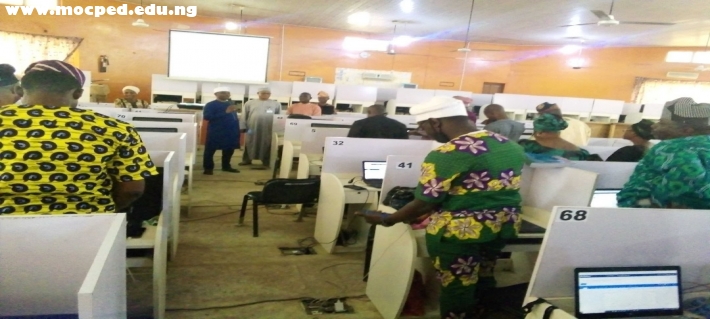
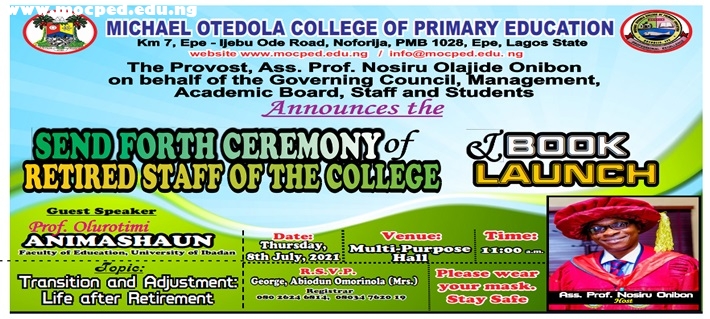
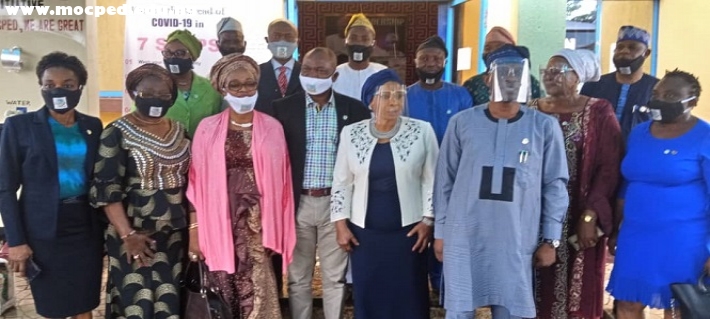

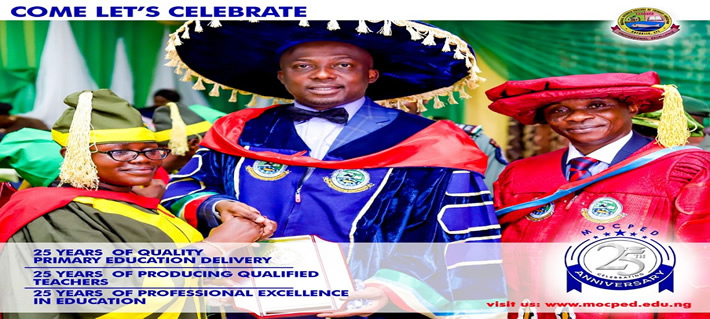
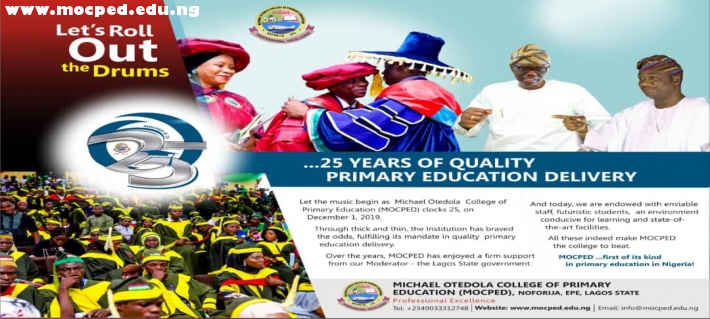
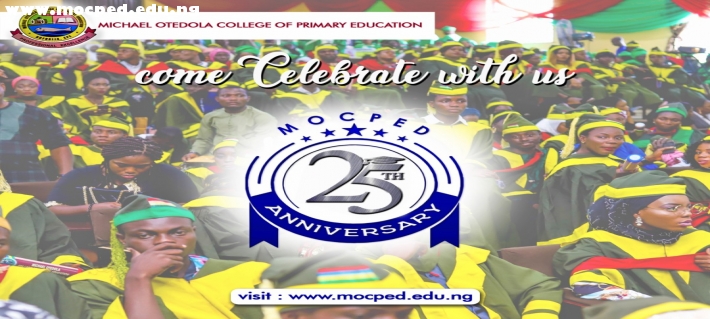
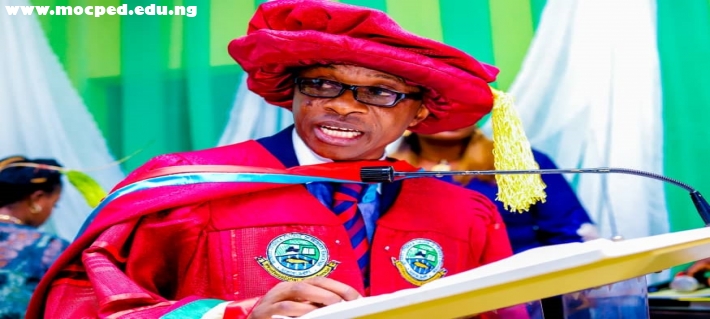
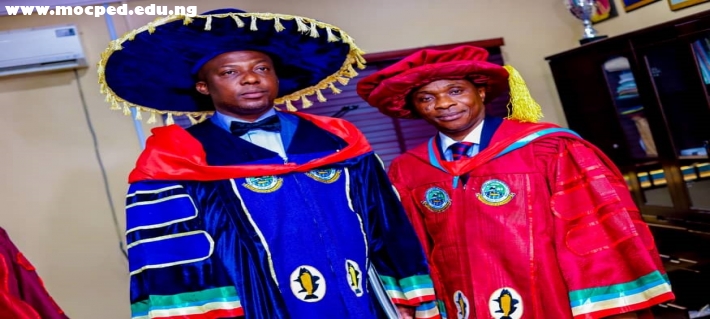
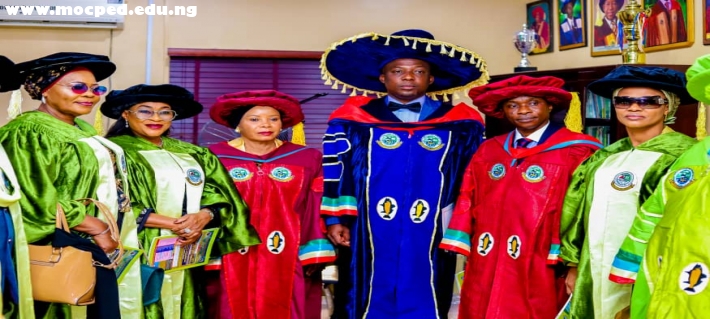





 Powered by MOCPED ICT TEAM
Powered by MOCPED ICT TEAM